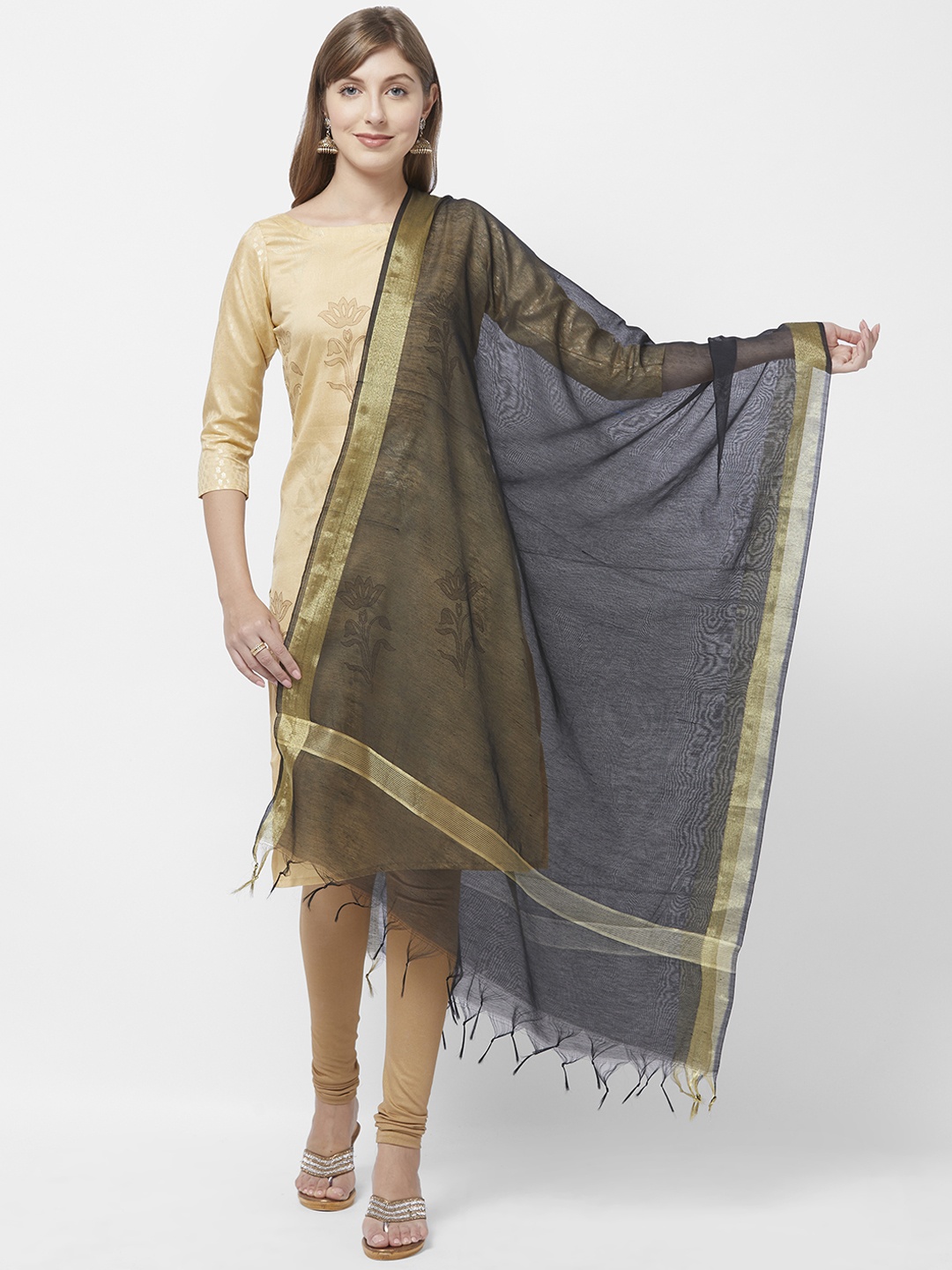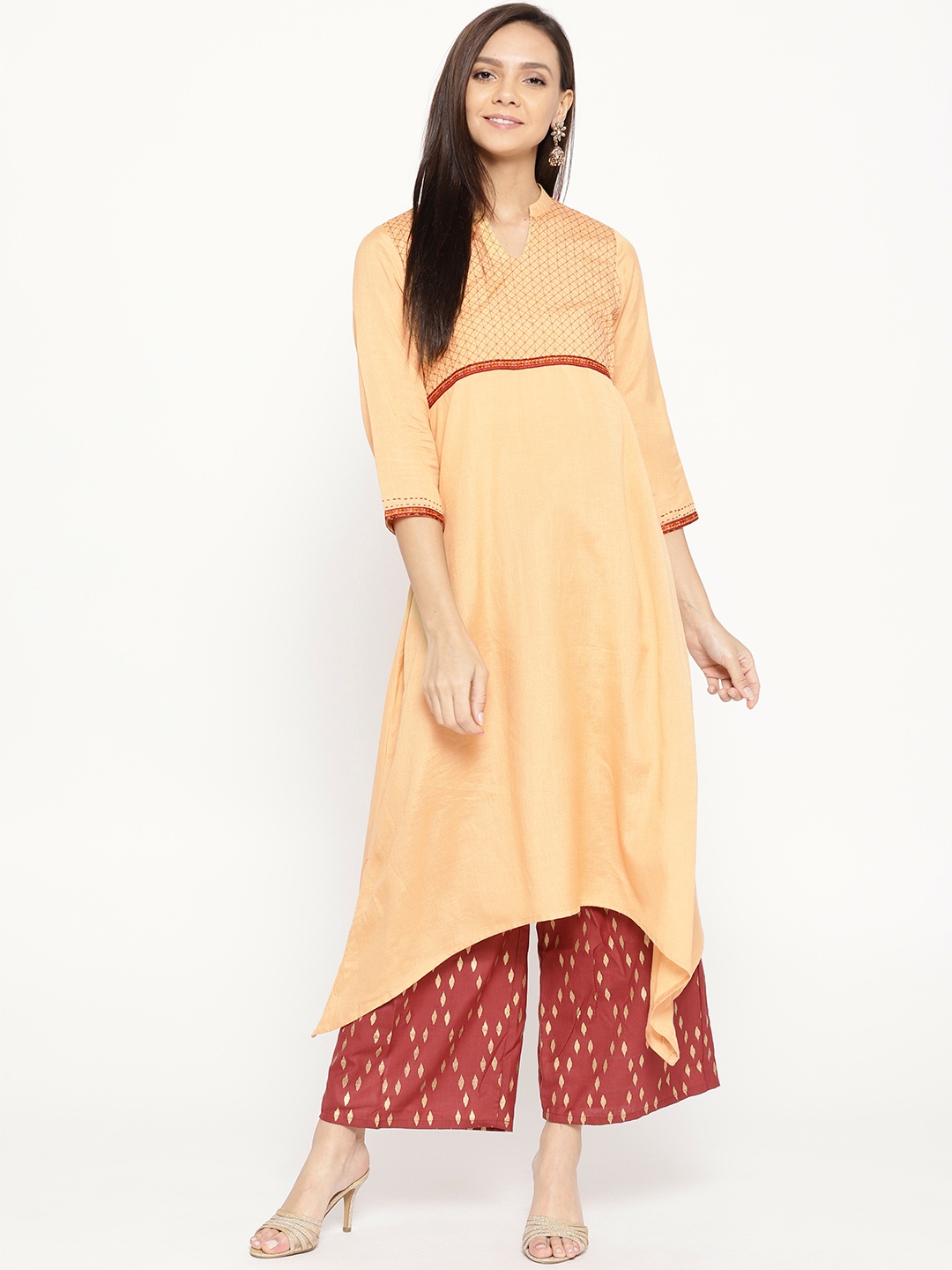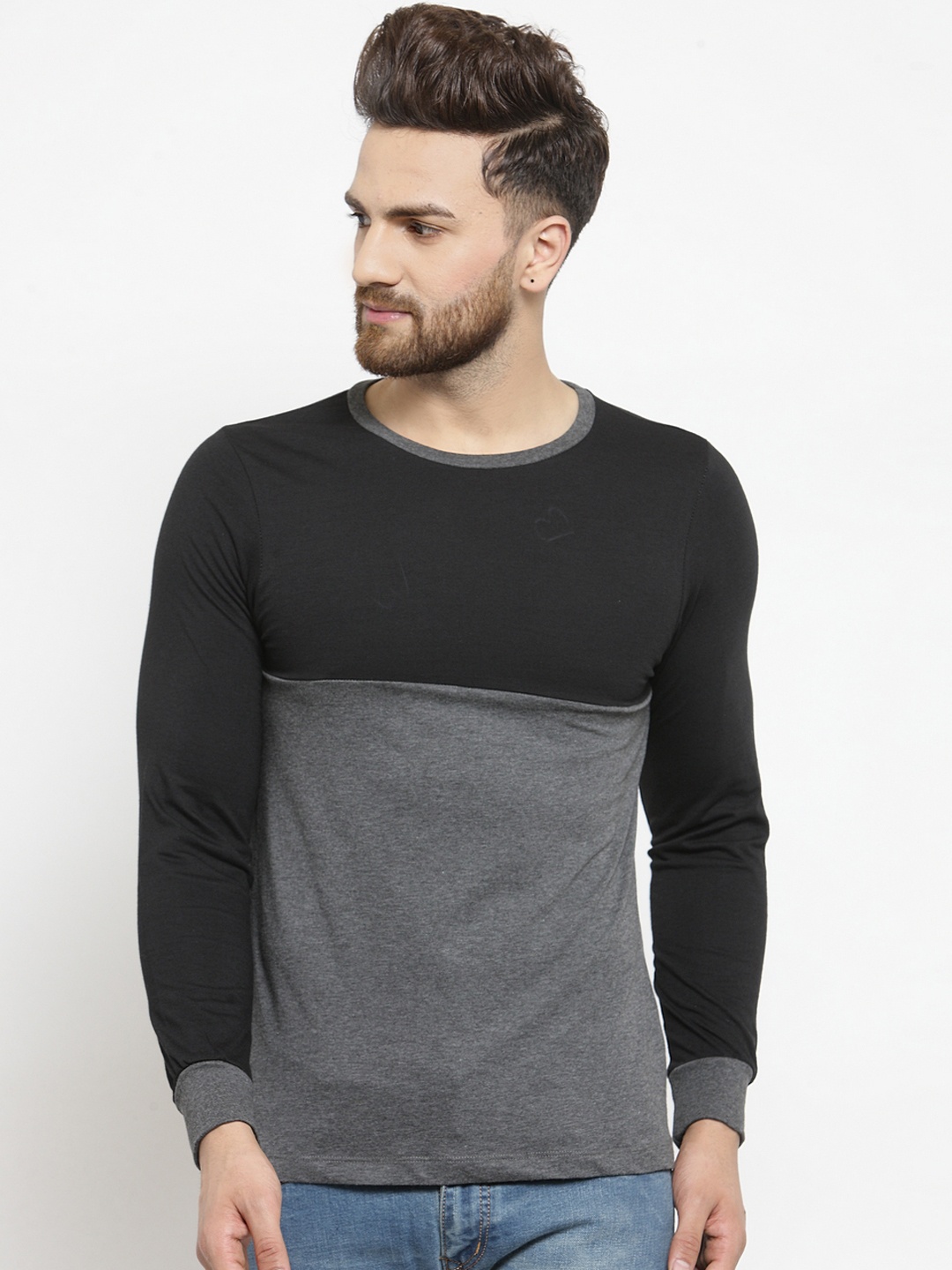Don't Get Duped: How to Verify Genuine Kanjivaram Sarees Before You Buy Online; 10 Tips
In a world where Add to Cart often replaces a trip to the local silk emporium, the hunt for a genuine Kanjivaram saree has taken a digital twist. This guide unravels how to spot an authentic Kanjivaram saree online, without falling for a shiny scam.

Authentic Kanjivaram Online: How to Shop Smart and Avoid Fakes
Nothing quite captures the grandeur of Indian tradition like a Kanjivaram saree. It's not just fabric, it's heritage woven in silk. The pride of Tamil Nadu, this saree is a staple at weddings, festivals, and family heirloom collections. But here's the twist: while hearts still yearn for that unmistakable Kanjivaram gleam, the shopping experience has gone virtual.
Scrolling through sarees online might save time and sweat, but it also opens the floodgates to imitations cleverly dressed as originals. With knock-offs available for a fraction of the price and photos edited to perfection, telling a real Kanjivaram apart from a fake has become a skill. One that's as important as choosing between rasam and sambhar on a Sunday.
This blog is your cheat sheet, blending tradition with tech-savviness, to help you buy an authentic Kanjivaram saree online with confidence, clarity, and a pinch of sass.
1. Know Thy Kanjivaram: What Makes It Special
The Kanjivaram saree isn't merely a drape; it's a legacy. Originating from the temple town of Kanchipuram in Tamil Nadu, this weave is revered for its rich silk, intricate zari work, and deep-rooted connection to South Indian culture. Each piece is a labour of love, often taking weeks to complete. The silk is thick and lustrous, and the zari, originally made with real silver dipped in gold, adds that majestic shimmer.
The craftsmanship stands out. The body and the pallu are woven separately and then joined so flawlessly that the joining is nearly invisible. It's said if the saree tears, it will never unravel from that joint, a small yet profound testament to its strength and authenticity.
When browsing online, it helps to know what you're looking for. Kanjivarams are heavier than the average saree and feature motifs inspired by temples, peacocks, and mythological tales. So if you're staring at a ‘Kanjivaram' saree with flimsy fabric and neon flowers, it's time to raise an eyebrow.
2. Price and Authenticity: If It's Too Good To Be True, It Probably Is
Let's talk money. An original Kanjivaram is not cheap, and for good reason. The silk used is of high quality, and the zari isn't some tinsel-thread gimmick, it's traditionally made from silver threads dipped in gold. The weaving takes time, skill, and patience. So when a website offers a 'pure Kanjivaram' for ₹2,500, that's your first red flag waving.
Genuine Kanjivarams usually start around ₹15,000 and can easily climb into lakhs depending on the intricacy of the work. Yes, it might make your wallet wince, but it's an investment. A real Kanjivaram lasts decades, becoming part of your family's story, worn by mothers, handed down to daughters, and admired at every function.
Remember, cost isn't just about the material; it reflects heritage, artisanship, and authenticity. If the price seems suspiciously low, it's likely not the real deal. Always think: would a master artisan work for peanuts, or would a century-old tradition come with a discount coupon?
Buying A Kanjivaram Saree Online? This Is How To Avoid Fakes And Find The Real Deal; Photo Credit: Pexels
3. Look For Silk Mark Certification: Your Saree's Birth Certificate
One sure-shot way to confirm your Kanjivaram is genuine? The Silk Mark. Issued by the Silk Mark Organisation of India, this certification ensures that the product is made from 100% pure silk.
Many reputable sellers will display this mark on their product pages, and the tag often comes attached to the saree itself. Think of it as your saree's passport, a seal of authenticity you can count on. When shopping online, check the description and close-up images for the Silk Mark. If it's missing or the seller is vague about it, that's a clue that something's off.
It's worth noting that some genuine sarees, especially from traditional looms, may not always come with this tag. But when buying online from unknown or new sellers, insist on the Silk Mark. It's your first line of defence in a world of copycat couture.
4. Fabric Clues: What You See Isn't Always What You Get
Online photos can be deceiving, especially with something as tactile as silk. You can't feel the weight, the texture, or the weave through a screen. But a little attention to detail goes a long way.
Kanjivaram silk is heavy, with a distinct stiffness and sheen that's elegant but never shiny in a plastic way. Zoom in on the images. Does the fabric have depth, or does it look like it's been overexposed with filters? Check for close-ups that show the weave, a genuine Kanjivaram has interlocked borders and pallu, not stitched or glued.
Many sites now offer product videos. Watch them. See how the fabric moves. A real Kanjivaram drapes with grace but never clings like chiffon. If it looks too light, too slippery, or overly shiny, it's probably art silk or polyester in disguise.
Also, real zari is muted in tone, a soft gold, not the blinding yellow of party streamers. Use your eyes and your instincts; they rarely lie.
Kanjivaram Secrets: A Buyer's Guide to Avoiding Fakes and Finding True Silk Online; Photo Credit: Pexels
5. Check The Weave: Join The Dots Between Tradition And Detail
Kanjivarams are defined by their weave. Unlike machine-made sarees, every inch of a real Kanjivaram is thoughtfully crafted. One classic marker? The body and the pallu are woven separately and then interlocked with a distinctive technique called the 'korvai'.
When shopping online, look for high-resolution images that let you inspect the pallu join. If the saree looks like one continuous piece or the border is poorly aligned, chances are it's mass-produced. Genuine korvai joins are intricate, almost invisible to the untrained eye, but a poorly made fake will often betray itself here.
Another detail: traditional Kanjivarams feature motifs rooted in South Indian heritage, think temple borders, mythical creatures, rudraksha beads, and peacocks. Designs should look refined, not computer-generated or too symmetrical. Imperfections in handloom sarees are natural, and charming. Flawless perfection often means it's from a power loom, not a master weaver.
6. Who's Selling It? Reputation Speaks Louder Than Discounts
It matters where you buy. Established handloom stores and reputed online portals often have years, sometimes generations, of goodwill behind them. Sites like Nalli, RMKV, Pothys, and Kanakavalli are trusted not just for quality, but for preserving the authenticity of the art.
If you stumble upon a lesser-known site, don't just be swayed by price and pretty pictures. Dig a little. Check for reviews, social media presence, return policies, and most importantly, how they talk about their sarees. Are they naming the weavers? Talking about the origin of the silk? Or are they just slapping the word 'Kanjivaram' on anything shiny?
Also, look at customer photos and testimonials. Nothing speaks truth like a customer in her living room twirling in a real Kanjivaram with unfiltered lighting. It's digital word-of-mouth, and it works wonders.
Real vs. Replica: Your Essential Guide to Identifying Genuine Kanjivaram Sarees Online; Photo Credit: Pexels
7. Read Between the (Product) Lines: Descriptions Matter
Don't ignore the product description, it's the saree's résumé. A genuine Kanjivaram listing should include details like:
- Pure mulberry silk
- Real or tested zari
- Korvai or traditional weaving techniques
- Silk Mark certification
- Loom origin (Kanchipuram, Tamil Nadu)
If the description is vague, full of words like 'silk feel,' 'Kanjivaram inspired,' or 'art silk blend', it's likely a clever fake. Also, beware of confusing jargon that masks the truth. 'Banarasi Kanjivaram' or 'Soft Kanjivaram' are marketing hybrids that don't quite reflect the real craft.
The more transparent the listing, the more confident you can be in your purchase. Transparency signals pride, and no artisan hides real art behind vague buzzwords.
8. Ask Questions: The Trust Test
One underrated but powerful strategy? Just ask. Most ethical sellers are happy to answer questions. If a website or Instagram store refuses to give clarity on silk quality, zari composition, or certification, that's your sign to click away.
- Questions to ask before buying:
- Is this pure mulberry silk?
- Is the zari pure, tested, or imitation?
- Does it have Silk Mark certification?
- Where was the saree woven?
- Is this handloom or power loom?
The way a seller responds can tell you everything. Are they enthusiastic? Do they give you details about the artisan or the loom? Or are they evasive and generic?
In the age of WhatsApp shopping and DMs, there's no shame in grilling a seller. After all, you're investing in a piece of art. Would you buy a diamond without a certificate?
9. Power Loom vs Handloom: Know the Difference
There's a world of difference between handloom and power loom, and it lies in the soul of the saree. A handloom Kanjivaram is woven on traditional looms by artisans who've often inherited the craft over generations. Each piece takes weeks to make, and you can almost feel the human touch in every motif.
Power loom sarees, though cheaper, are machine-made. They lack the richness, depth, and finesse of a handloom weave. If a saree looks suspiciously symmetrical, light, or uniform, chances are it's power loom.
Some sellers openly market power loom sarees but still use the term 'Kanjivaram.' That's misleading. Always clarify. If the product page doesn't specify 'handwoven,' be sceptical. Authentic Kanjivarams carry imperfections, slight weaving inconsistencies or threads out of line. Machines, on the other hand, don't make mistakes.
10. Trust Your Gut: Intuition Is A Weave In Itself
At the end of the day, intuition matters. If something feels off, be it a glowing review that sounds robotic or a picture that looks suspiciously Photoshopped, trust your gut. Buying a Kanjivaram isn't like picking a kurti off a rack. It's emotional, cultural, even spiritual.
Online shopping has its perks, but it also demands a level of vigilance. Slow down, compare, cross-check, and when in doubt, ask a saree-loving aunt or friend who's been there. Often, that one phone call could save you from ₹10,000 worth of polyester regret.
Products Related To This Article
1. MANOHARI Woven Kanjivaram Jacquard Saree (Pink)
2. HouseOfCommon Self Design Kanjivaram Satin Saree (Dark Green)
3. Avante Self Design Kanjivaram Silk Blend Saree (Blue, Green)
4. Tasrika Woven Kanjivaram Silk Blend Saree (Orange)
5. FluteFashion Self-Design Kanjivaram Silk Blend Saree (Grey)
6. Ramya Woven Kanjivaram Cotton Silk Saree (Green)
7. Satrani Self Design, Woven, Embellished Kanjivaram Satin Saree (Pink, Dark Green)
A Kanjivaram saree isn't just an outfit, it's an emotion wrapped in silk and zari. While the world moves online, the values that make this saree special remain grounded in heritage, skill, and authenticity. Shopping digitally doesn't have to mean compromising on tradition. With a discerning eye, a few smart questions, and an appreciation for detail, finding a real Kanjivaram online is entirely possible.
In a time when fast fashion is everywhere, choosing an authentic weave is a nod to craftsmanship that refuses to be rushed. It's tradition, timeless, elegant, and proudly Indian.
So go ahead, click, compare, and question. Let your next Kanjivaram be as real as your love for filter coffee. Shop Now On Flipkart.
Disclaimer: The images used in this article are for illustrative purposes only. They may not be an exact representation of the products, categories, and brands listed in this article.






























